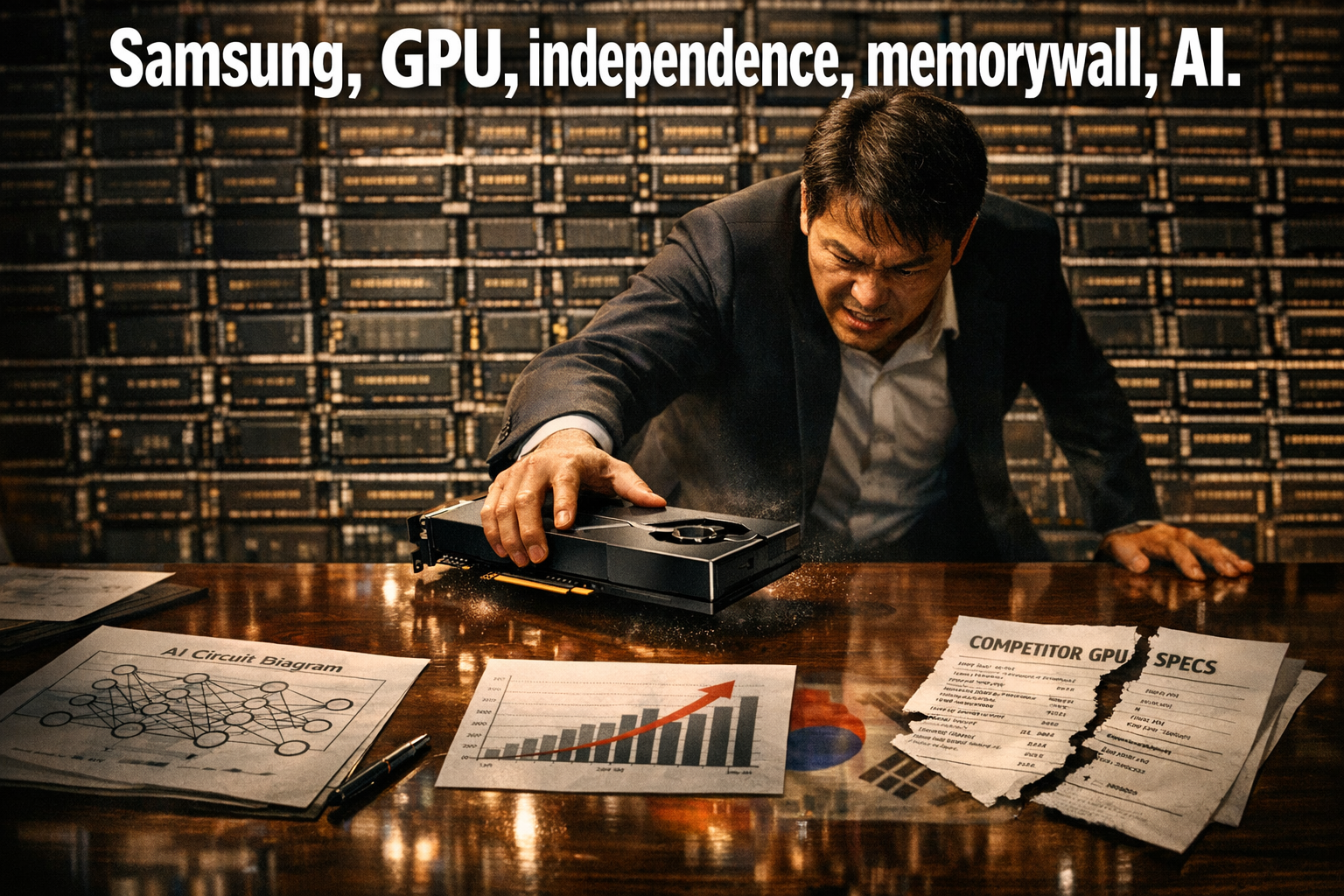● Foundry Crisis- Samsung Trails TSMC, China
Samsung Electronics Foundry Crisis and the Advent of the AI Semiconductor Era: Key Issues to Watch
1. Semiconductor Market Changes and the Advent of the AI Era
Starting with the ups and downs of Samsung Electronics’ existing memory semiconductor divisions, such as DRAM and HBM.
Now, the market is being reorganized around AI-related semiconductors, rather than memory vs. non-memory.
In the past, competition was focused on memory, but now we are entering an era of opening up new worlds with AI accelerators and GPUs.
In this process, Samsung Electronics’ AI semiconductor performance is relatively poor compared to SK Hynix.
2. Samsung Electronics’ Foundry and the Challenge of Technological Innovation
Samsung Electronics announced an investment of 100 trillion won in the foundry business in 2019, aiming to be number one by 2030,
But its market share plummeted from an initial lead (20% market share) to the low 90s.
Despite high investment, concerns about falling market share and losses are emerging, falling behind in competition with the three major Chinese companies.
The success stories of TSMC and the foundry strategies of Nvidia and AMD are being highlighted.
Eventually, Samsung Electronics’ design division (Exynos, etc.) also becomes dependent on TSMC, revealing a lack of technological innovation.
3. Global Semiconductor Competitive Landscape and the Rise of Chinese Technology
The existing CPU-centric competition between Intel, AMD, etc. has been replaced by a TSMC-centric foundry business model.
Especially in the AI era, a strategy of separating design and manufacturing is becoming a key success factor.
Meanwhile, Chinese companies are rapidly growing in various semiconductor and AI technology fields,
Raising awareness of the limitations of Samsung Electronics and Korean technology.
China already has an advantage in the number of engineers and technical papers,
It is likely to be a decisive variable in the global competitive landscape in the future.
4. Geopolitical Crisis and Future Outlook
Geopolitical issues such as the U.S.-China summit and APEC summit are affecting the semiconductor and IT industries.
Political instability in the United States and the background to the emergence of leaders like Trump also highlight the need to strengthen technological competitiveness.
If Samsung Electronics fails to innovate technologically and secure future growth engines,
Not only the domestic semiconductor industry, but the entire Korean economy is at risk of falling into a low-growth phase.
In this situation, our country and companies must focus on
Continuously checking technological competitiveness and preparing countermeasures in major industries such as AI, foundry, and semiconductors.
Summary
The semiconductor market is being reorganized around AI.
Samsung Electronics’ foundry business is showing concerns about falling market share and losses compared to high investment.
Global companies, including TSMC, have achieved technological innovation through successful foundry businesses.
China is challenging the global market based on rapid technological improvement and multifaceted engineering competitiveness.
Geopolitical issues and the U.S.-China summit increase uncertainty in the industry, and the future response of the Korean economy and Samsung Electronics is key.
[Related Articles…]
Samsung Electronics’ Strategies to Overcome the Crisis in the Foundry Competition ·
China’s Semiconductor Leap: Analysis of the Global Competitive Landscape
*YouTube Source: [경제 읽어주는 남자(김광석TV)]
– 삼성전자 파운드리의 위기, 왜 TSMC와 중국에 밀리고 있을까? | 경읽남과 토론합시다 | 서영민 기자 2편



